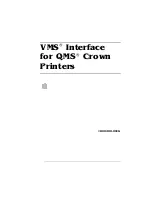
562
ActionScript classes
this.myFunction(name);
};
// create a new object method and assign it the reference
this[name] = f;
// return the reference
return f;
};
// test __resolve using undefined method names
// __resolve will only be called once for each method name
myObject.someMethod(); // calls __resolve
myObject.someMethod(); // does not call __resolve because it is now defined
myObject.someOtherMethod(); // calls __resolve
myObject.someOtherMethod(); // does not call __resolve, no longer undefined
Usage 4: The following example builds on the previous example by reserving a method name,
onStatus()
, for local use so that it is not resolved in the same way as other undefined
properties. Added code is in bold typeface.
// instantiate a new object
var myObject:Object = new Object();
// define a function for __resolve to call
myObject.myFunction = function(name) {
trace("Method "+name+" was called");
};
// define the __resolve function
myObject.__resolve = function(name) {
// reserve the name "onStatus" for local use
if (name == "onStatus") {
return undefined;
}
trace("Resolve called for "+name); // to check when __resolve is called
// Not only call the function, but also save a reference to it
var f:Function = function () {
this.myFunction(name);
};
// create a new object method and assign it the reference
this[name] = f;
// return the reference
return f;
};
// test __resolve using the method name "onStatus"
trace(myObject.onStatus("hello"));
// output: undefined
Usage 5: The following example builds on the previous example by creating a functor that
accepts parameters. This example makes extensive use of the arguments object, and uses
several methods of the Array class.
// instantiate a new object
var myObject:Object = new Object();
Summary of Contents for Flash Lite 2
Page 1: ...Flash Lite 2 x ActionScript Language Reference...
Page 22: ...22 Contents...
Page 244: ...244 ActionScript language elements...
Page 760: ...760 ActionScript classes...
















































